|
Gigabyte GA-MA78GPM-DS2H Motherboard
BIOS
The Gigabyte GA-MA78GPM-DS2H has for its BIOS a standard Award BIOS v6.00.
Award BIOS is used far and wide on computers because of its ease of use and its feature set. Instead of taking an in depth look at a very common BIOS, I’m going to just show you the over clocking section. The rest of the BIOS is standard features and such and shouldn’t be tinkered with past required modifications.
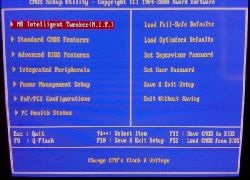 |
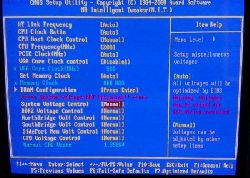 |
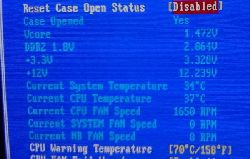 |
Also included as a startup configuration is the RAID utility. It’s also a pretty standard RAID controller GUI, supporting all the standard low end RAID configurations or the usual JBOD (just a bunch of disks). The only reason I’m really mentioning the RAID configuration tool is because I had a few problems with it that ultimately led to me using JBOD. That said, I really got a kick out of some of the English inside of the utility, check it out below.
It's hard to read, but it says "Secure Erase Function Is DOING Now... Please Wait...", score another one for translators.
Overclocking
A motherboard itself isn’t very overclockable, sure the chipset is, but a motherboard is what facilitates the overclocking of all the other components. Thus, while the actual motherboard can’t be overclocked, I still believe there to be good reason to have tested overclocking and to share some of my thoughts about it.
First I went with the old fashioned BIOS overclock, and then I moved on to a utility that AMD provides for overclocking. I’ll talk about general overclocking here and that software utility on the next page.
Here is the stock settings on the board via CPU-Z:
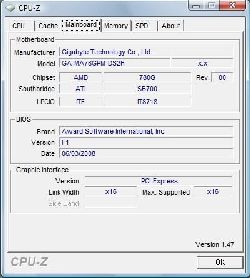 |
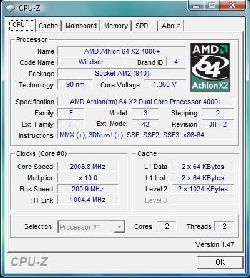 |
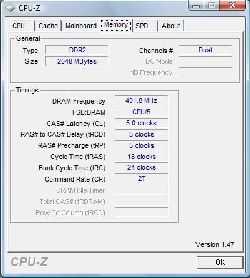 |
This is a good time to post the important pieces of hardware in the test rig
| RAM | Crucial Ballistix DDR2 PC2-6400 |
| Processor | AMD Athlon 64 4000+ X2 |
This was the stable overclock my instinct told me was right. I could squeeze more out and POST, but I was worried about introducing errors. Nobody likes a computer that crashes a lot, no matter how fast. It should also be noted that you overclock hardware at your own risk; if you think you know what you’re doing I strongly suggest you do NOT overclock your computer. Additionally, understand the risks overclocking has with the warranties on your hardware, consult the component manufacturer for more details.
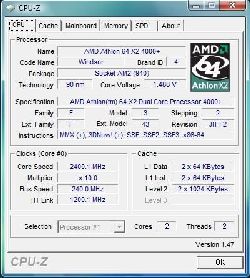 |
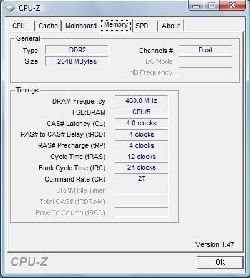 |
I was able to nudge the DRAM frequency from 400 (times two makes the DDR 800) and bump it up to 480, which is 960 MHz. This came as no surprise as this is overclocking RAM and I have it volted to just over 2V. Additionally, the timings were tightened to 4-4-4-12, in order to give an overall increase in performance.
The CPU’s stock clock is at 2.0 GHz and I bumped it up to 2.4 GHz. This is all it took to get the equivalent in performance as I would have by buying a more expensive processor. It should be noted I had to increase the voltage to allow the computer to POST. The power is set to 1.5V. To keep up, the HT link was increased by 200.
Overclocking Thoughts
Overall I was pleased with how smoothly overclockingwent on this rig. I’ve overclocked many computers before, and the Gigabyte GA-MA78GPM-DS2H is as smooth as they come. It tries to be as smart as it can about guessing other settings you want. For instance it reminded me to up my HT link by setting it for me after I set my new processor speed.
The only thing that bothered me was a few of the voltages were not quite what I was asking from it, but they were close and a part won’t fry in the little bit more or less you get from it. I wouldn’t worry too much about it, but it should be noted nonetheless. Overall, however, it was a pleasant experience.
REALTIME PRICING ON THIS MOTHERBOARD




